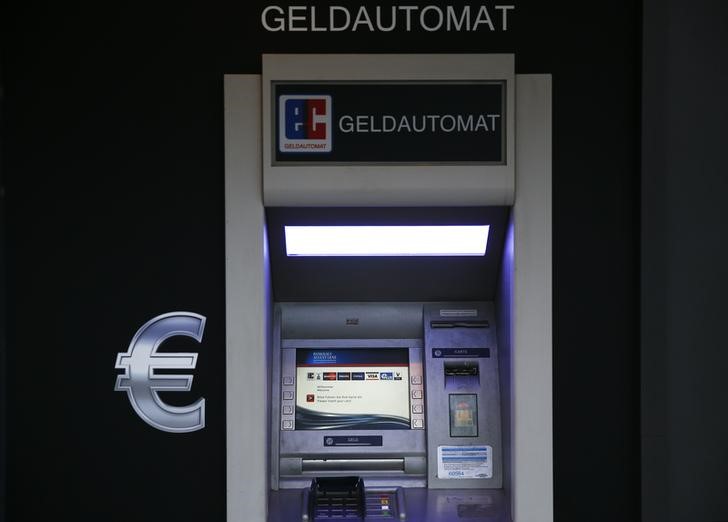BERLIN (Reuters) - Germany's annual inflation turned positive in March, suggesting the European Central Bank's expansive monetary policy is gaining traction even though some of the rise was caused by hoteliers and retailers raising prices for the early Easter holiday.
The stronger-than-expected March reading came after the ECB introduced far-reaching measures to ease policy earlier this month, its latest attempt to try to revive growth and stave off the threat of deflation.
German prices, harmonised to compare with other European countries (HICP), rose by 0.1 percent on the year after falling by 0.2 percent in February, preliminary data released by the Federal Statistics Office on Wednesday showed.
The March reading nonetheless remained well below the European Central Bank's inflation target for the whole euro zone of just below 2 percent. Economists polled by Reuters had expected the March reading to show a decline of 0.1 percent.
Economists said the unexpected rise in prices could be partly traced to the early Easter holiday and said they expected inflation to remain low in the near term.
"The probability that it will fall once again significantly under the zero line has, however, become smaller now," said DZ bank economist Michael Holstein.
"The ECB's latest measures have nothing to do with this increase in inflation. It could, however, help to ease nervousness in the Euro Tower," he said, referring to the central bank's headquarters.
For the euro zone, the Reuters consensus forecast is for a March inflation rate, due out on Thursday, of -0.1 percent from -0.2 percent in February.
After the positive reading from Germany, economists said the data could also surprise to the upside.
Commerzbank (DE:CBKG) analyst Marco Wagner said he expected the German inflation rate to remain low over the next few months.
"From the summer it will, however, presumably, pick up noticeably, since prices for energy, which have pushed the inflation rate down up to now, should start to rise again," he said.
On an non-harmonised basis, German annual inflation accelerated to 0.3 percent in March from zero in February.
A breakdown of the non-harmonised data showed prices for food and services rose more sharply than a month ago, while a steep drop in energy prices continued to act as a brake on the headline figure.

The statistics office said it would publish final consumer price data for March on April 12.